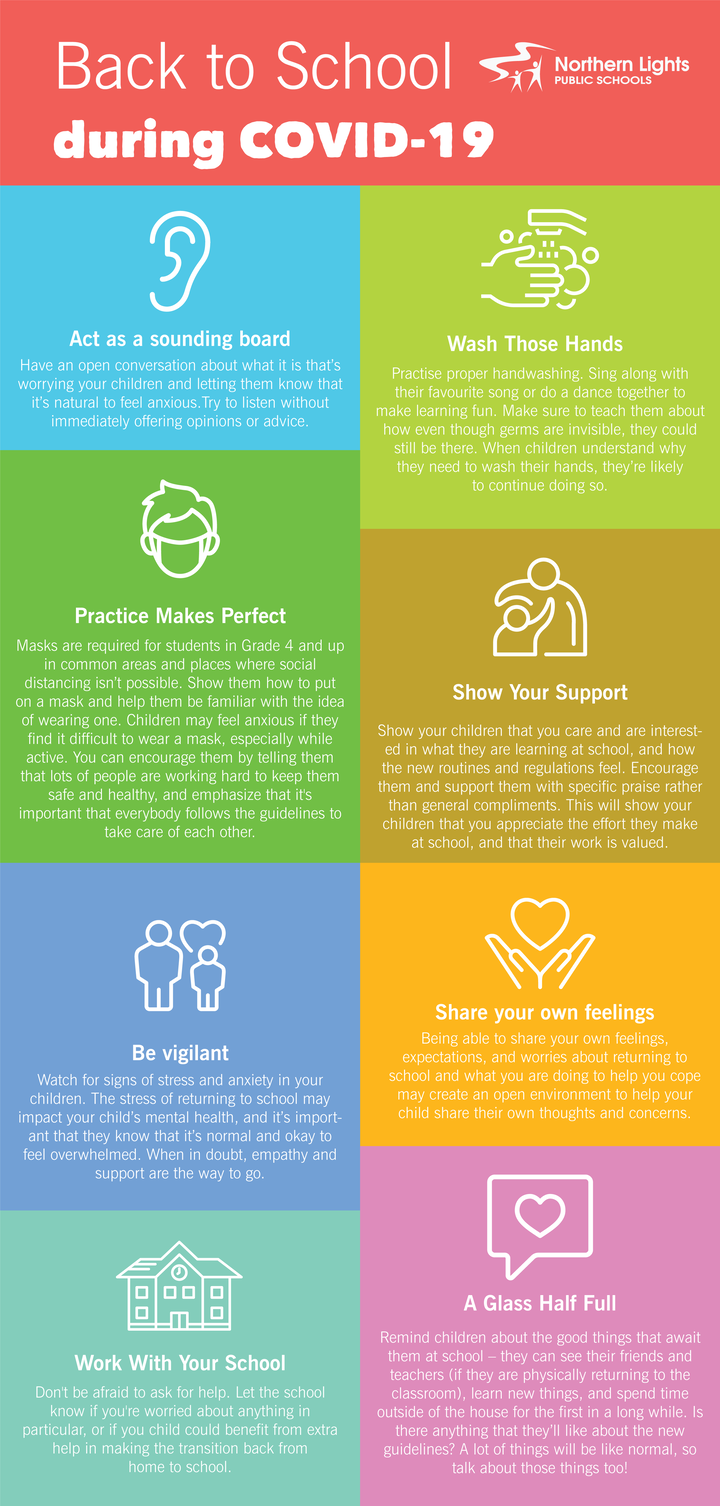Last year we shared a Back to School Mental Health Checklist for Families. While all of those tips are still important, we have created a new list for families that focuses on preparing children for school and all of the health provisions that will be in place to deal with COVID-19.
- Act as a sounding board.
Have an open conversation about what it is that's worrying your children and letting them know that it's natural to feel anxious. Try to listen without immediately offering opinions or advice. - Wash those hands.
Practise proper handwashing. Sing along with their favourite song or do a dance together to make learning fun. Make sure to teach them about how even though germs are invisible, they could still be there. When children understand why they need to wash their hands, they're likely to continue doing so. - Practice makes perfect.
Masks are required for students in Grade 4 and up in common areas and places where social distancing isn't possible. Show them how to put on a mask and help them become familiar with the idea of wearing one. Children may feel anxious if they find it difficult to wear a mask, especially while active. You can encourage them by telling them that lots of people are working hard to keep them safe and healthy, and emphasize that it's important that everybody follows the guidelines to take care of each other. - Show your support.
Show your children that you care and are interested in what they are learning at school, and how the new routines and regulations feel. Encourage them and support them with specific praise rather than general compliments. This will show your children that you appreciate the effort they make at school, and that their work is valued. - Be vigilant.
Watch for signs of stress and anxiety in your children. The stress of returning to school may impact your child's mental health, and it's important to know that it's normal and okay to feel overwhelmed. When in doubt, empathy and support are the way to go. - Share your own feelings.
Being able to share your own feelings, expectations, and worries about returning to school and what you are doing to help you cope may create an open environment to help your child share their own thoughts and concerns. - Work with your school.
Don't be afraid to ask for help. Let the school know if you're worried about anything in particular, or if your child could benefit from extra help in making the transition back from home to school. - A glass half full.
Remind children about the good things that await them at school - they can see their friends and teachers (if they are physically returning to the classroom), learn new things, and spend time outside of the house for the first time in a long while. Is there anything they'll like about the new guidelines? A lot of things will be like normal, so talk about those things too!
